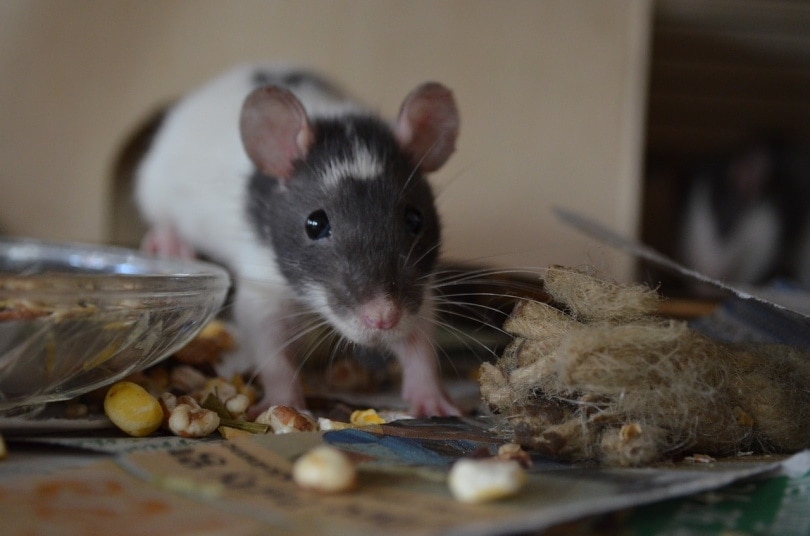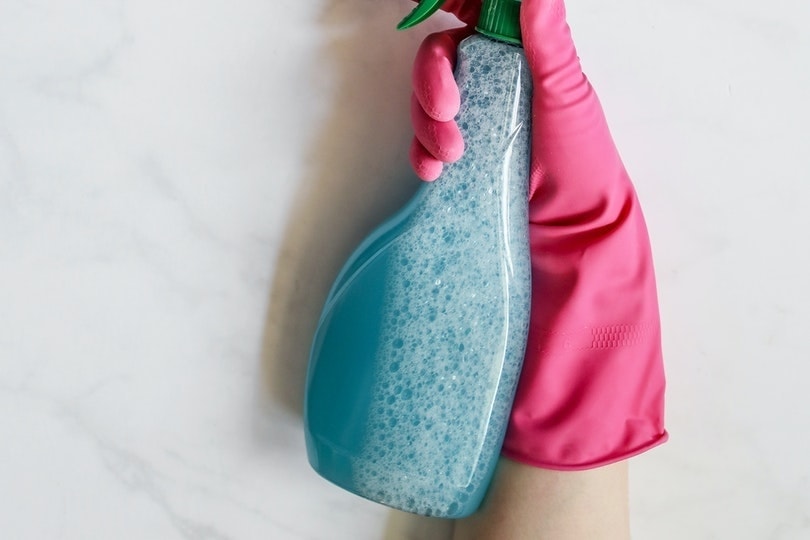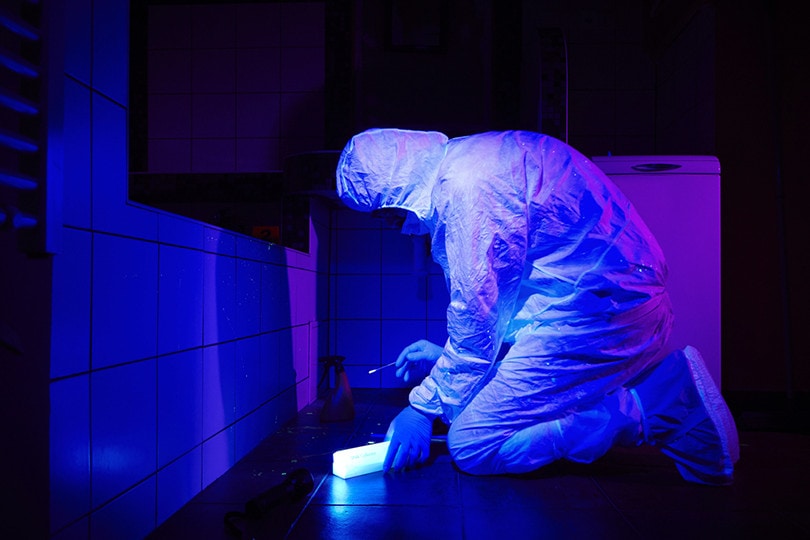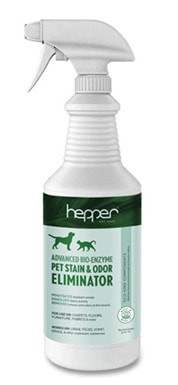How to Get Rid of Rat Urine Smell In 5 Steps
-
Pete Ortiz
- Last updated:

Rat urine contains several diseases that can affect human beings in different ways, apart from being extremely smelly. Rodents use urine to mark their territory, but pet rats can create some bad smells with their urine too.
To help you get rid of this smell, we came up with 5 easy steps to address the problem.
Tools & Materials

- Feet covers
- Coverall
- Rubber gloves
- Respiratory mask
- Bleach
- Disinfectants
- Rag/cloth/sponge
- Vinegar and olive oil
- Steam cleaner
Step-by-Step Guide to Cleaning Rat Urine and Getting Rid of the Smell
1. Protect yourself
Some of the most dangerous diseases that rodents are capable of spreading include Hantavirus, Salmonella, Rat Bite Fever, Tularemia, and the Lymphocytic Choriomeningitis Virus, commonly referred to as the LCMV.
At the moment, some of them don’t even have cures. Take the Hantavirus for example. It’s a life-threatening illness that has been around for a while with no cure in sight—not even a vaccine or treatment.
So if you catch it, the only thing that your doctors will be able to do is to make you feel comfortable and pray that your immunity is strong enough to fight the foreign bodies that have gained access to your system.
If you’re not ready to go through all that, wear your coverall, use the foot covers to protect your feet, the mask to protect your respiratory system, and rubber gloves for your hands.
2. Trace the origin of the smell

We are not going to pretend that this part is going to be easy, because it’s not—unless you have more than 300 million olfactory receptors in your nose, just like dogs do. If there’s a puddle in the middle of an open space, it will be easy to find. However, if it has already soaked through the planks, you’ll have to work a little bit harder.
The first thing that we would do is to try to trace the smell using our noses. Our sense of smell might not be as strong as that of a dog, but it’s helpful nonetheless. Besides, it’s not easy to confuse the smell of ammonia with that of something different.
If that doesn’t work, go for a UV light.
Rat pee usually has amino acids and traces of hair that fluoresce when exposed to a specific type of light, otherwise known as ultraviolet light or black light. You can get one of those from your favorite online store.
If you’ve spotted the affected area, let’s move on to the next step.
3. Allow air to circulate in the room
The work of the respirator mask is to protect you from two things: that terrible smell of rat urine, and those emanating from your cleaning products. But the mask won’t be enough. You still have to ensure that the room is well ventilated.
Open all your doors, windows, attic hatches, and everything else that can be opened. You’re even allowed to plug in the fan if you think it can help. Just do whatever it takes to ensure air is freely flowing through that affected area.
4. Start scrubbing

Now, this is the most important step, as it will determine whether or not you’ll be able to completely get rid of that urine smell. You have to know your products, and that includes their strengths and weaknesses.
Don’t just pay attention to how effective the product is at cleaning and disinfecting such surfaces. You also have to think about how it could react with the surface itself. If the reaction is too strong, and it ends up damaging the floorboards, you’ll have a bigger problem in your hands.
Our go-to products include bleach, disinfectants, steam cleaner, vinegar, and olive oil. If the urine was on a metallic surface, you could use any one of these products. But if it’s on a wooden surface, you can’t use the steam cleaner or bleach. You’ll have to rely on vinegar instead.
Blot up the excess urine, apply the appropriate product of the affected surface, and then start scrubbing. You can use a rag that you won’t mind disposing of right after, or a sponge. Do not use bleach, if the piece of clothing is something that you frequently use to wipe surfaces.
5. Masking lingering odor
There will be instances where you’ll feel the need to do more to get rid of a lingering smell. Especially if you use homemade cleaning products instead of commercial ones. If that’s the case, you could use air fresheners, incense sticks, charcoal, or even ground coffee. We guarantee you they’ll get the job done.
Are you looking for an enzyme cleaner that can keep your house clean and your pet happy? We recommend the Hepper Advanced Bio-Enzyme Pet Stain & Odor Eliminator Spray, which permanently gets rid of the most stubborn stains and smells. There’s even a 100% satisfaction guarantee so you can try this cleaner risk-free! Click here to order your first bottle.
At House Grail, we’ve admired Hepper for many years, and decided to take a controlling ownership interest so that we could benefit from the outstanding products of this cool cat company!

Is it harmful to Inhale Rat Urine?
We really don’t want to sound negative, but it’s a possibility. Once that urine dries up, those particles could become airborne. And when that happens, if the rodent had hantavirus in its system, it could be passed on to you.
Even if you don’t inhale it, you could still be affected when it comes into contact with your broken skin. This is highly unlikely, though.
Why Does Rat Urine Smell So Bad?
That’s because there’s a very high concentration of urea in their urine, which is then broken down to ammonia. And even though ammonia is a colorless gas, the smell produced is always very strong, and irritating.
Conclusion
We would advise you to use disposable cleaning equipment while tackling this kind of problem. Your health should always come first. If disposing of them is not an option, make sure they are washed using hot water and disinfectants. That’s the only way you’ll be able to protect yourself and your family.
See also:
- 10 Best Digital Photo Frames: Reviews & Top Picks
- How to Frame a Puzzle (Preparation Guide & 7 Easy Tips)
Featured Image Credit: level17-design, Pixabay
Contents


